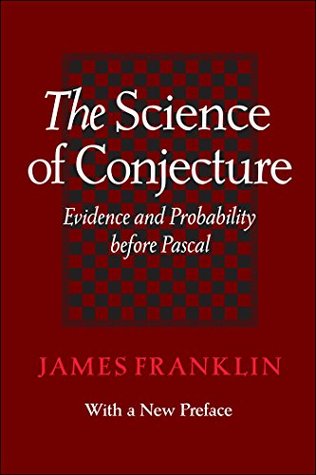If developments in probability suddenly appear in fifth-century B.C. Athens or seventeenth-century France, no one is surprised, since the general outline of events in those times and places is well known, and it is generally understood why those were periods of rapid intellectual change. It may be less expected that twelfth-century France and Italy should be a hotbed of probability theories, since modern perceptions of that epoch have been distorted by propaganda connected with the myth of the Renaissance, which requires the Renaissance to contrast with an earlier period of darkness and slow
...more
Welcome back. Just a moment while we sign you in to your Goodreads account.


